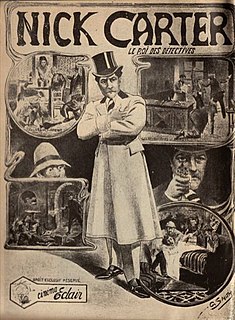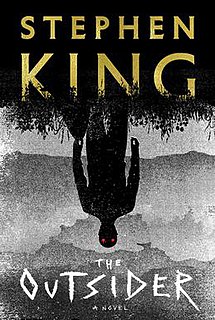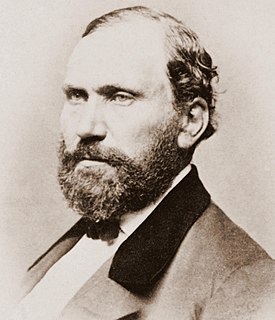Detective fiction is a subgenre of crime fiction and mystery fiction in which an investigator or a detective—either professional, amateur or retired—investigates a crime, often murder. The detective genre began around the same time as speculative fiction and other genre fiction in the mid-nineteenth century and has remained extremely popular, particularly in novels. Some of the most famous heroes of detective fiction include C. Auguste Dupin, Sherlock Holmes, and Hercule Poirot. Juvenile stories featuring The Hardy Boys, Nancy Drew, and The Boxcar Children have also remained in print for several decades.

Crime fiction, detective story, murder mystery, mystery novel, and police novel: These terms all describe narratives that centre on criminal acts and especially on the investigation, either by an amateur or a professional detective, of a serious crime, generally a murder. It is usually distinguished from mainstream fiction and other genres such as historical fiction or science fiction, but the boundaries are indistinct. Crime fiction has multiple sub-genres, including detective fiction, courtroom drama, hard-boiled fiction and legal thrillers. Most crime drama focuses on crime investigation and does not feature the court room. Suspense and mystery are key elements that are nearly ubiquitous to the genre.

Mystery fiction is a genre of fiction usually involving a mysterious death or a crime to be solved. Often with a closed circle of suspects, each suspect is usually provided with a credible motive and a reasonable opportunity for committing the crime. The central character will often be a detective who eventually solves the mystery by logical deduction from facts presented to the reader. Sometimes mystery books are nonfictional. "Mystery fiction" can be detective stories in which the emphasis is on the puzzle or suspense element and its logical solution such as a whodunit. Mystery fiction can be contrasted with hardboiled detective stories, which focus on action and gritty realism.
The police procedural, or police crime drama, is a subgenre of detective fiction that emphasizes the investigative procedure of a police officer or department as the protagonist(s), as contrasted with other genres that focus on a private investigator or amateur detective. Unlike traditional mysteries, which conceal the criminal's identity until the police solve the crime in the narrative climax, police procedurals often reveal the perpetrator's identity to the audience early in the narrative, making it an inverted detective story or "howcatchem". Police procedurals attempt to accurately depict such police-related topics as forensic science, autopsies, gathering evidence, search warrants, interrogation and adherence to legal restrictions and procedure.

A mystery film is a genre of film that revolves around the solution of a problem or a crime. It focuses on the efforts of the detective, private investigator or amateur sleuth to solve the mysterious circumstances of an issue by means of clues, investigation, and clever deduction.

Randall and Hopkirk (Deceased) is a British private detective television series, starring Mike Pratt and Kenneth Cope respectively as the private detectives Jeffrey Randall and Martin Hopkirk. The series was created by Dennis Spooner and produced by Monty Berman, and was first broadcast in 1969 and 1970. In the United States, it was given the title My Partner the Ghost. In Spain it was entitled El Detective Fantasma. The series contains plots and scenes that combine elements of the supernatural horror, private investigator and crime thriller genres.

Cycle of the Werewolf is a short horror novel by American writer Stephen King, featuring illustrations by comic-book artist Bernie Wrightson. Each chapter is a short story unto itself. It tells the story of a werewolf haunting a small town as the moon turns full once every month. It was published as a limited-edition hardcover in 1983 by Land of Enchantment, and in 1985 as a mass-market trade paperback by Signet. King also wrote the screenplay for its film adaptation, Silver Bullet (1985).

Born to Kill is a 1947 American film noir starring Lawrence Tierney and directed by Robert Wise. It was the first film noir to be directed by Wise, who later directed The Set-Up (1949), The Captive City (1952), and Odds Against Tomorrow (1959). The film also features Claire Trevor, Walter Slezak, and Elisha Cook Jr.

Jeffrey "Jeff" Randall is a fictional character played by Mike Pratt in the original private detective series, Randall and Hopkirk (Deceased) from 1969 to 1971 and by Bob Mortimer in the BBC remake. He is the only man in the world who can see and hear the ghost of his deceased partner Marty Hopkirk.

Mr. Murder is a horror novel by the best-selling author Dean Koontz, released in 1993.

The Split is a 1968 film directed by Gordon Flemyng and written by Robert Sabaroff based upon the Parker novel The Seventh by Richard Stark.

The Damnation Game is a horror novel by English writer Clive Barker, published in 1985. It was written just after finishing the first trilogy of Books of Blood, and tells a Faustian story that touches on topics such as incest, cannibalism, and self-mutilation in a frank and detailed manner. It was his first novel.
Everett Franklin Bleiler was an American editor, bibliographer, and scholar of science fiction, detective fiction, and fantasy literature. In the late 1940s and early 1950s, he co-edited the first "year's best" series of science fiction anthologies, and his Checklist of Fantastic Literature has been called "the foundation of modern SF bibliography". Among his other scholarly works are two Hugo Award–nominated volumes concerning early science fiction—Science-Fiction: The Early Years and Science-Fiction: The Gernsback Years—and the massive Guide to Supernatural Fiction.

While the City Sleeps is a 1928 American silent crime drama film about a tough New York City police detective, played by Lon Chaney, out to get a murdering gangster. The film was directed by Jack Conway and co-stars Anita Page, Carroll Nye, Wheeler Oakman, and Mae Busch.

"B" Is for Burglar is the second novel in Sue Grafton's "Alphabet" series of mystery novels and features Kinsey Millhone, a private eye based in Santa Teresa, California.

Miracles for Sale is a 1939 American mystery film directed by Tod Browning, and starring Robert Young and Florence Rice. It was Browning's final film as a director.

The Devil's Party is a 1938 American crime film directed by Ray McCarey based on the Borden Chase novel Hells' Kitchen Has a Pantry.

The Glitter Dome is a 1984 American made-for-HBO crime drama film starring James Garner, Margot Kidder and John Lithgow. The film, based on the 1981 Joseph Wambaugh Hollywood-set homicide novel, was directed by Stuart Margolin, who also scored the film and played a supporting part. The movie was filmed in Victoria, British Columbia and co-starred Colleen Dewhurst. It was subsequently released on video in 1985. The film was also the last film for John Marley.

The Outsider is a horror novel by American author Stephen King, published on May 22, 2018, by Scribner.

















